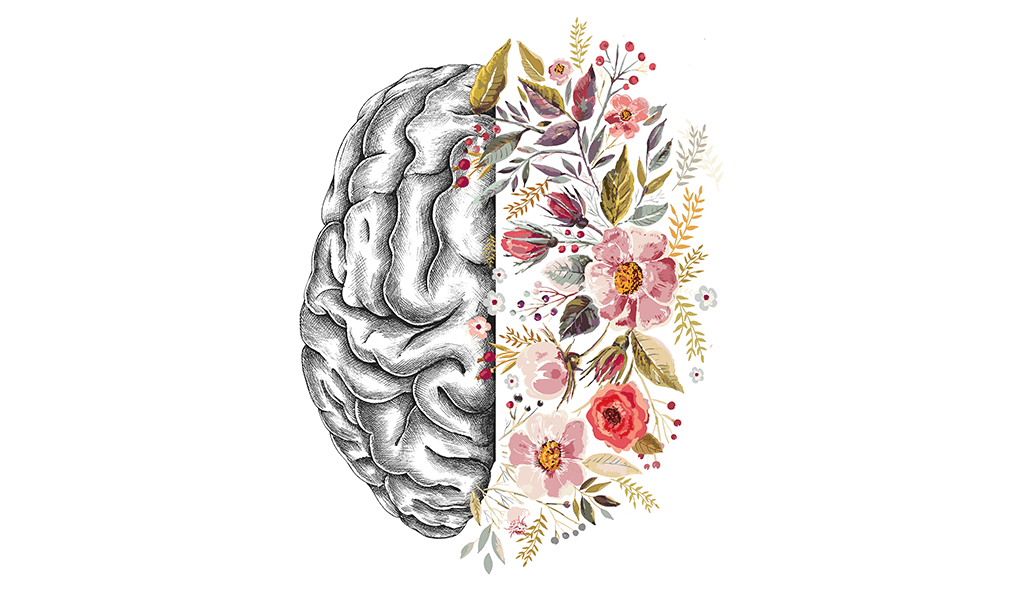By Connie Chen
Dr. Virginia Rangos is a Teaching Fellow in the Social Sciences Division. She recently completed her PhD at the University of Chicago in 2022. A sociologist by training, Rangos’s dissertation focused on the aftermath and reconstruction of identities of patients who had suffered traumatic brain injuries like strokes. In Spring 2023, Rangos will teach a new course, Mind, Brain, and Mental Health, for the Health and Society minor.
At the foundational level, this course will focus on how society constructs diagnostic categories when it comes to the mind and brain. How do we determine what is “normal” versus “pathological?” How do we come to understand and diagnose different categories of disorders and how do these categories evolve over time? When considering questions like these, Rangos notes that it is important to pay particular attention to the impact of social factors and intersectionalities of identity. For example, she cites some of American psychiatrist and author Jonathan Metzl’s work on schizophrenia. Schizophrenia used to be primarily applied to white women who were seen as fragile, vulnerable, and even poetic. Over a period of time, in concert with a period of social change and activism around race and society, there was a shift in how schizophrenia was understood and diagnosed. It became increasingly applied to Black men, carrying labels of being obstreperous and disruptive. Furthermore, these changes were emphasized by developments in treatment, specifically the shift from non-invasive talk therapy to the increased use of antipsychotic medications with the intent of making the patient compliant.
In addition to learning more about the historical and social backgrounds of certain disorders and mental health care, through Mind, Brain, and Mental Health, Rangos also hopes students can recognize that knowledge is socially constructed. In science and medicine, there is often the notion that diagnostic categories are based on fact and scientists and physicians are able to find all of the answers in nature. That, however, is not the case; knowledge is constructed and influenced by social factors and thus, it is crucial to think about these topics from a sociological perspective.
One major example of this is the globalization of Western models, or essentially the colonization of other forms of understanding differences in the mind and brain. In the United States, and parts of Europe, mental health care is dominated by a biomedical approach to understanding and treating certain diagnoses. Attached to narrow approaches like these are things like stigmatization (and de-stigmatization) of disorder and disability, and optimization of the self through use of medications.
Rangos believes that students studying any subject could gain a lot from this course. Traditionally, there are many students interested in medicine and healthcare who take classes like these in order to learn more about topics and issues that physicians might encounter. However, Rangos notes, there is almost nobody that is untouched by issues of physical and mental health, whether it’s in their personal and/or professional life.
In addition to teaching students about the social construction and implications of diagnostic categories, Mind, Brain, and Mental Health will also allow students to learn about the fundamentals of who we are and what makes us human. On a physical level, a brain is just a vulnerable lump of organic matter; however, it also allows us to be a living, breathing, thinking, and feeling being. Our brain dictates who we are and how we experience society and the larger world; and, as discussed earlier, so much of our identities and perception of identities is impacted by social factors. These are the kinds of topics and questions that Rangos is most excited to explore with students.
Mind, Brain, and Mental Health will allow students to learn about the fundamentals of who we are and what makes us human.
Mind, Brain, and Mental Health
Instructor: Virginia Rangos
HLTH 24003 (GNSE 24003; CRES 24525; HIPS 24002)
This course will approach the medicalization of mental healthcare, through an intersectional lens, with particular attention to how diagnosis and treatment are gendered and racialized. Topics will include: the construction of diagnostic categories and the process of medicalization and de-medicalization (e.g. of addiction, sexual behavior and identity, etc.); stigma and disability activism; and experiencing and conceptualizing an injured or ill brain/mind. Course material will focus on the United States, with international case comparisons.
